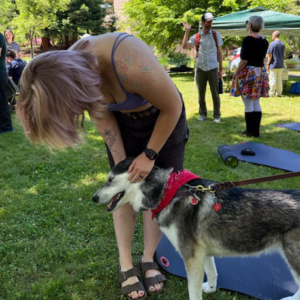SOU considers partners for older adult housing and education facility
(Ashland, Ore.) — Southern Oregon University is in the process of selecting an official partner to build and operate a housing and educational facility for older adults on a 4.3-acre site previously occupied by the Cascade Complex of residence halls.
“SOU is excited to continue advancing this initiative to identify a partner company that aligns with our vision and values for this new space on campus,” SOU President Rick Bailey said. “This also serves as a testament to our commitment to changing the fiscal model of our university to keep it affordable and accessible for generations of students to come.”
SOU has invited two companies to campus, where they will present their visions for a partnership during the second phase of the selection process. The companies under consideration are McCormack Baron Salazar and Pacific Retirement Services.
Representatives of both companies will engage with university leaders, the wider campus and local community during their visits to Ashland. The companies were selected in phase one as part of a national “request for proposal” bid process.
Medford-based Pacific Retirement Services, whose properties include the Rogue Valley Manor, will make its on-campus presentation from 9 to 9:50 a.m. on July 9 in the SOU Music Recital Hall, followed by St. Louis-based McCormack Baron Salazar, which will make its presentation from 1:30 to 2:20 p.m. on July 11, in the Music Recital Hall .
Members of the SOU, Ashland and Rogue Valley communities are encouraged to attend each of the moderated sessions. The meetings will feature presentations from the vendors, followed by opportunities for questions and answers.
Community members may submit questions in advance to ensure a robust discussion. SOU has established a designated website (https://sou.edu/older-adult-living-community-provider-partnership/) for those seeking additional information or to submit questions. The university’s Office of the General Counsel can also be contacted at generalcounsel@sou.edu or (541) 552-8055 for further inquiries.
Developers from around the country were invited in January to submit proposals for the project – an entrepreneurial opportunity to forge a synergy between the facility’s residents, traditional SOU students, the Osher Lifelong Learning Institute (OLLI) at SOU and the university. The project is intended to generate long-term revenue for SOU while supporting the university’s commitment to lifelong learning.
Several proposals were submitted and were narrowed to the two finalists in a review process that extended through the spring.
The university will make its final selection, then negotiate specifics for a public-private partnership to build and run the proposed SOU facility. If those negotiations fail to produce an agreement, the university will shift to the runner-up.
The university is not expected to take an ownership interest or operational role in the project, but will provide agreed-upon services and amenities for the facility and its residents.
Older adult communities are a rare but growing feature on university campuses across the U.S., and the SOU facility would be the first in Oregon – capitalizing on southern Oregon’s reputation as a retirement mecca with a blend of educational, cultural and recreational opportunities.
-SOU-
About Southern Oregon University
Southern Oregon University is a medium-sized campus that provides comprehensive educational opportunities with a strong focus on student success and intellectual creativity. Located in vibrant Ashland, Oregon, SOU remains committed to diversity and inclusion for all students on its environmentally sustainable campus. Connected learning programs taught by a host of exceptional faculty provide quality, innovative experiences for students. Visit sou.edu.





 Attendees at the event – hosted by the Southern Oregon Behavioral Health Initiative – enjoyed a range of relaxing and restorative activities, including painting, essential oil blending and other hands-on crafts that invited creativity and mindfulness. The stretching section offered a calm space to breathe and gently move, while the sunny afternoon provided the perfect setting to reconnect with others in a low-pressure, welcoming environment.
Attendees at the event – hosted by the Southern Oregon Behavioral Health Initiative – enjoyed a range of relaxing and restorative activities, including painting, essential oil blending and other hands-on crafts that invited creativity and mindfulness. The stretching section offered a calm space to breathe and gently move, while the sunny afternoon provided the perfect setting to reconnect with others in a low-pressure, welcoming environment.




